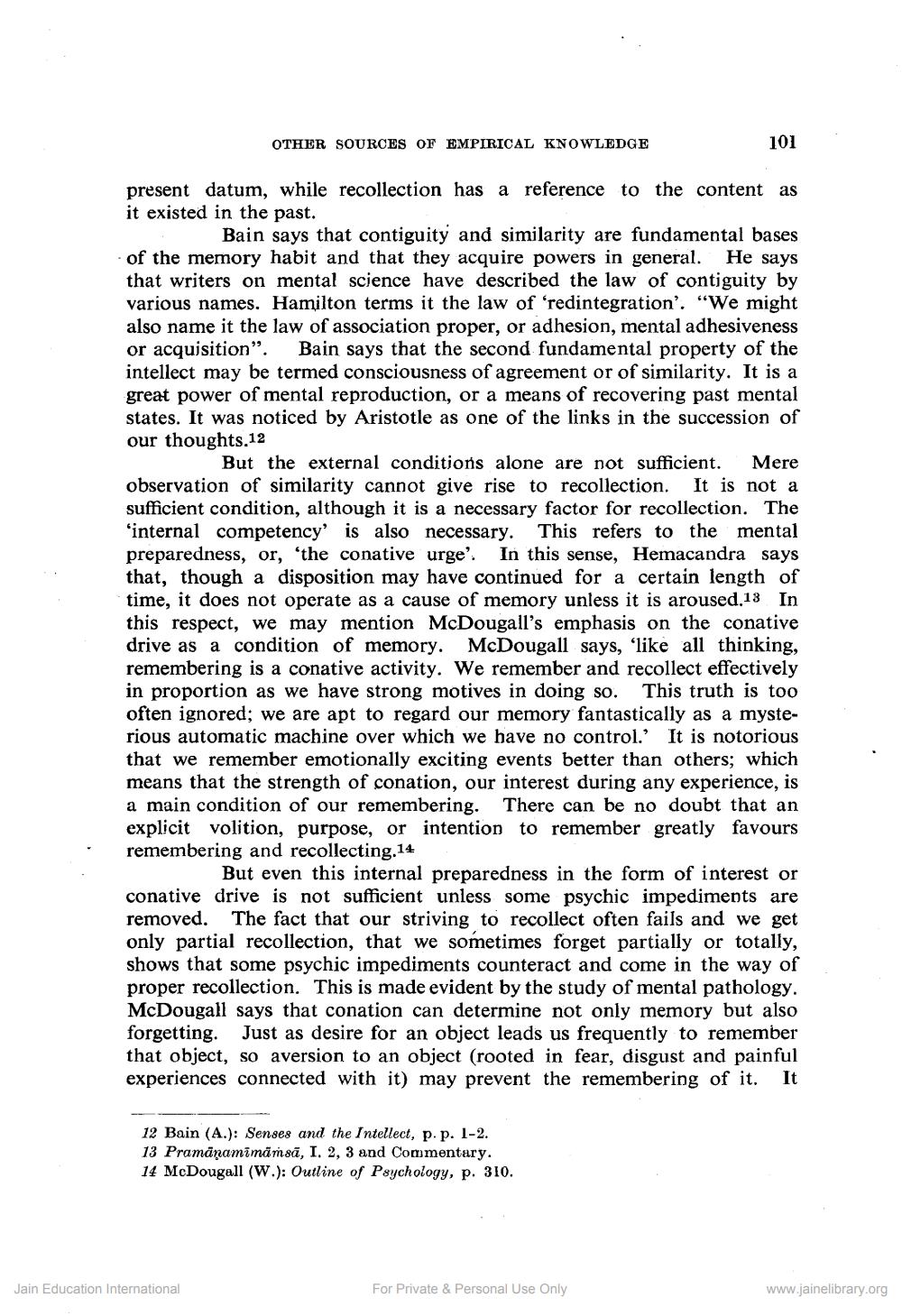________________
OTHER SOURCES OF EMPIRICAL KNOWLEDGE
101
present datum, while recollection has a reference to the content as it existed in the past.
Bain says that contiguity and similarity are fundamental bases of the memory habit and that they acquire powers in general. He says that writers on mental science have described the law of contiguity by various names. Hamilton terms it the law of 'redintegration'. "We might also name it the law of association proper, or adhesion, mental adhesiveness or acquisition". Bain says that the second fundamental property of the intellect may be termed consciousness of agreement or of similarity. It is a great power of mental reproduction, or a means of recovering past mental states. It was noticed by Aristotle as one of the links in the succession of our thoughts,12
But the external conditions alone are not sufficient. Mere observation of similarity cannot give rise to recollection. It is not a sufficient condition, although it is a necessary factor for recollection. The 'internal competency' is also necessary. This refers to the mental preparedness, or, 'the conative urge'. In this sense, Hemacandra says that, though a disposition may have continued for a certain length of time, it does not operate as a cause of memory unless it is aroused. 13 In this respect, we may mention McDougall's emphasis on the conative drive as a condition of memory. McDougall says, 'like all thinking, remembering is a conative activity. We remember and recollect effectively in proportion as we have strong motives in doing so. This truth is too often ignored; we are apt to regard our memory fantastically as a mysterious automatic machine over which we have no control.' It is notorious that we remember emotionally exciting events better than others; which means that the strength of conation, our interest during any experience, is a main condition of our remembering. There can be no doubt that an explicit volition, purpose, or intention to remember greatly favours remembering and recollecting.14
But even this internal preparedness in the form of interest or conative drive is not sufficient unless some psychic impediments are removed. The fact that our striving to recollect often fails and we get only partial recollection, that we sometimes forget partially or totally, shows that some psychic impediments counteract and come in the way of proper recollection. This is made evident by the study of mental pathology. McDougall says that conation can determine not only memory but also forgetting. Just as desire for an object leads us frequently to remember that object, so aversion to an object (rooted in fear, disgust and painful experiences connected with it) may prevent the remembering of it. It
12 Bain (A.): Senses and the Intellect, p. p. 1-2. 13 Pramānamimāṁsā, I. 2, 3 and Commentary. 14 McDougall (W.): Outline of Psychology, p. 310.
Jain Education International
For Private & Personal Use Only
www.jainelibrary.org




